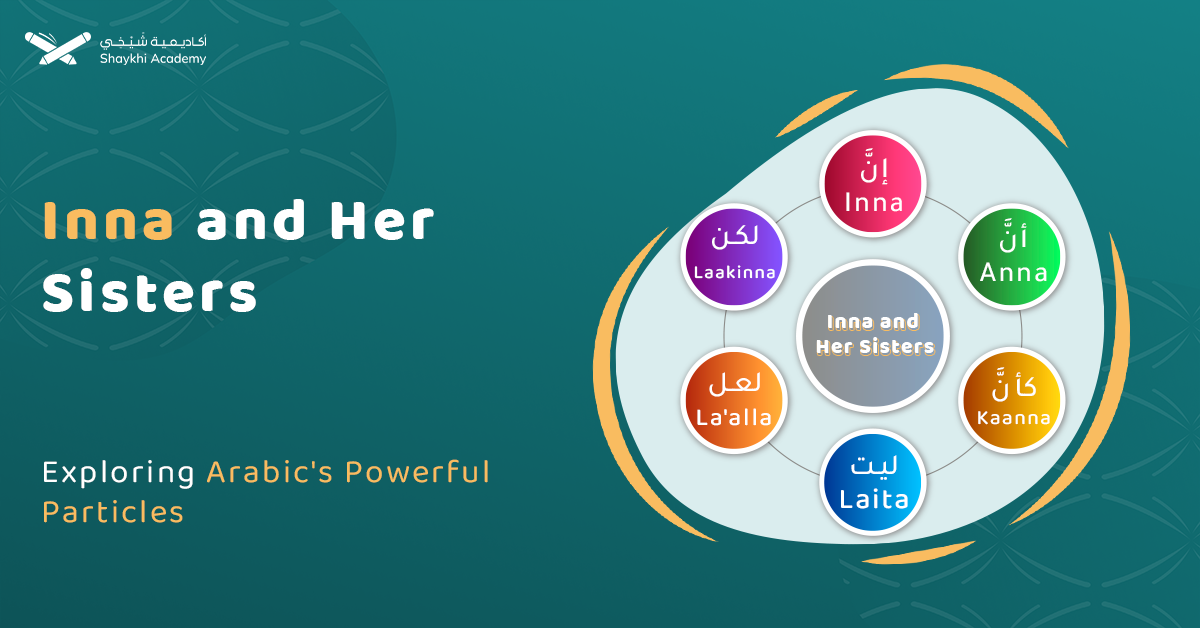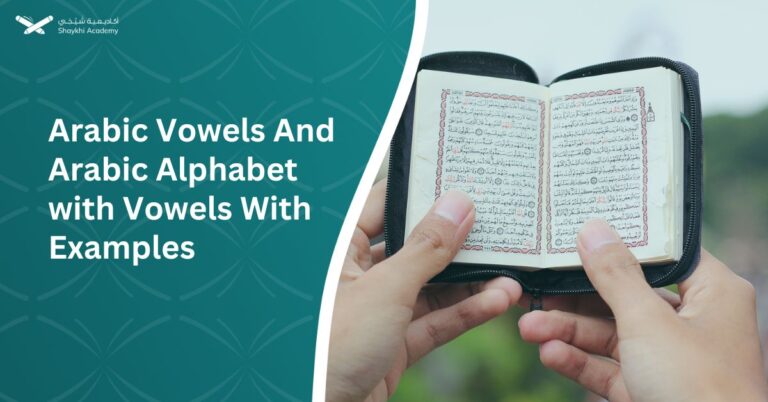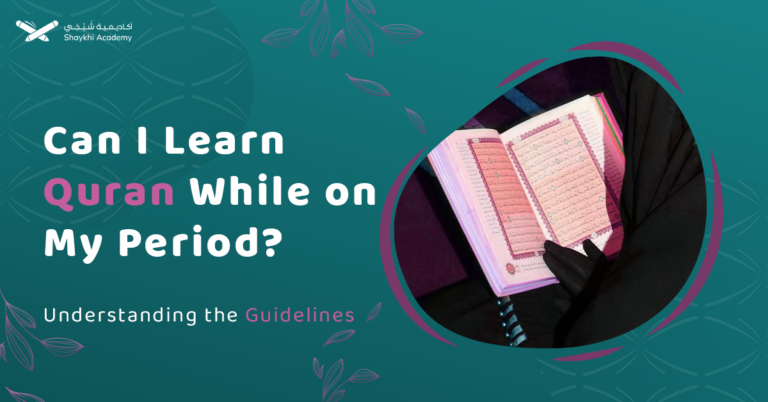The Arabic language stands out for its tools, such as “Inna wa Akhawatuha,” which enhance precise articulation and enrich stylistic expression. These tools affect grammar and add meaning to sentences. Learning them can be a qualitative leap in your understanding of different Arabic texts.
This topic will help you master using the Arabic sister “Inna Wa Akhwatuha,” understand how they affect the grammatical case of words, and understand what they mean.
Introduction to The Arabic “sisters” (النواسخ)
The Arabic “sisters” or (النواسخ) are 3 types of elements that are added to the sentence and change the grammar for this reason they are called nawāsikh (نواسخ) which is an Arabic word that means “changing the other”. They are called also sisters “Akhwatuha” since each group of elements causes the same grammatical changes. Here is summarized information about them and you can learn more and practice them in our Classical Arabic Course.
1. Inna Wa Akhwatuha.
They are our topic and will be discussed in detail below. They make the subject nominative and the predicate accusative. They are different from other sisters by being particles.
2. Zanna Wa Akhwatuha.
They are a special type of nawāsikh that makes both the subject and the predicate accusative. They are verbs that add a meaning of uncertainty to the sentences.
3. Kana Wa Akhwatuha.
They are a very common type of nawāsikh. They are also verbs. They make the subject nominative and the predicate accusative. They are used extensively in the Quran. We provide a Quranic Arabic Course to know the Arabic language that is used in the Quran.
Inna wa Akhwatuha With Examples
Inna Wa Akhwatuha are special particles used before a nominative sentence and change the grammatical case of the subject and the predicate. For this reason, they are called nawāsikh (نواسخ) as mentioned above.
The word Akhwatuha means her sisters. This term helps you imagine that these particles are a group of sisters and “Inna” =إن is the oldest sister. Inna Wa Akhwatuha are causative particles that make the subject in the accusative case and let the predictive nominative as it is.
See this sentence:
السماءُ صافيةٌ
When we put the particle “إن”, it will be
إن السماءَ صافيةٌ
The subjective=(al-mubtada’) “السماء”, will be called Ism Inna= اسم إن which means the noun of Inna. It will be rendered to the accusative case. It will have all accusative case markings mainly the Fatha and other special markings in definite cases. The following table gathers them with examples.
| Type of Noun | Accusative Marking | Example | Transliteration | Translation |
| Singular | Fatḥa | إن الطالبَ مجتهدٌ | Inna at-tāliba mujtahidun | Indeed the student. |
| Dual | yaa letter | إن الطالبَينِ مجتهدان | Inna at-tālibayn mujtahidān | indeed two students. |
| Sound Masculine Plural | yaa letter | إن المعلمينَ مجتهدون | Inna al-mu‘allimīn mujtahidūn | indeed teachers. |
| Sound Feminine Plural | Kassra | إن المعلماتِ مجتهداتٌ | Inna al-mu‘allimāt mujtahidātun | indeed female teachers. |
Six Particles Of Inna Wa Akhwatuha:
Inna Wa Akhwatuha are six particles each one giving a special meaning when added to the nominal sentence. Here is a breakdown of all these six particles.
1. Inna “إنَّ”
This is a very common particle. It is used to ascertain your information. When we use this particle, we express great confidence in our sentences. It can be translated into “Indeed”. You saw many examples of this particle in this topic and this is the time to practice, you can practice in our Arabic Group Classes.
2. Anna “ َّأن”
Anna is very similar to the previous one “Inna” in the spelling and the meaning. It expresses certainty but less than Inna. When it is added to some preposition, it gives different meanings.
The following table explains this with examples:
| particle | meaning | example | transliteration | translation |
| أن | That | علمتُ أنَّ الطقسَ جميلٌ | ‘Alimtu anna aṭ-ṭaqsa jamīlun | I learned that the weather is nice. |
| لأن | Because – as | درستُ كثيرًا لأنَّ الامتحانَ صعبٌ | Darastu kathīran li’anna al-imtiḥāna ṣa‘bun | I studied a lot because the exam is hard. |
| مع أن | despite | نجحَ مع أنَّ الظروفَ كانت صعبةً | Najḥa ma‘a anna aẓ-ẓurūfa kānat ṣa‘batan | He succeeded despite the difficult circumstances. |
| علمًا بأن | Given that | سأشاركُ في الرحلةِ علمًا بأنَّ الجوَّ ممطرٌ | Sa’ushāriku fī ar-riḥlati ‘ilman bi’anna al-jawwa mumṭirun | I will join the trip given that the weather is rainy. |
3. Ka’anna “كأنَّ”
This particle is used to liken something to another. You can use this Particle when you find a resemblance between two things. The following table gives you examples:
| sentence | Transliteration | translation |
| كأنَّ السماءَ تمطرُ لآلئً | Ka’anna as-samā’a tamṭuru laʾālin | As if the sky is raining pearls. |
| كأنَّ الطفلَ ملاكٌ | Ka’anna aṭ-ṭifla malākun | As if the child is an angel. |
| كأنَّ البحرَ مرآةٌ واسعةٌ | Ka’anna al-baḥra mirʾātun wāsiʿatun | As if the sea is a wide mirror. |
4. Lakinna “لكنَّ”
Lakinna means “but”. It is used to give additional information that is contrary to the information mentioned before. From this instance, it can be used to correct something. For example,
الجو ممطر لكنه حارٌ…………..the weather is rainy but it is hot.
5. Lyta “ليتَّ”
Lyta “ليت” means “hoping that”. It is used preceded by “يا”. When you said “ياليت”, you wish something to happen but you know that is unlikely to happen. In a Poetic Context:
ليت الشباب يعود يومًا …………….I hope the youth returns one day.
6. La‘alla “لَعَلَّ”
La‘alla “لعل” means “hoping that” but you know that it is possible to happen or you know that this is happening mostly. In the Quran, Allah says in Surat Al Talq:
لَا تَدْرِي لَعَلَّ اللَّهَ يُحْدِثُ بَعْدَ ذَٰلِكَ أَمْرًا
Translation: “You never know; Allah may afterward bring about a new situation.”
The following chart shows you Inna Wa Akhwatuha along with their meaning to memorize them easily.
The Khabar “the predicate” of Inna Wa Akhawtuha?
The Khabar of Inna wa Akhwatuha remains in the nominative case, so it has a Damma or other special markings such as the letter waw “ و” for the sound masculine plural and the letter alif “ا” for feminine and masculine dual. It occurs in one the following 3 types:
1. Single-word khabar:
When the predictive is composed of one word that takes the nominative marking according to its type. For example, see the former table all examples are single-word Khabar.
2. Sentence as a predictive “Inna Khabar”:
When the predictive is composed of a whole sentence. This sentence can be a nominative or a verbal sentence. It will be In the position of a nominative predicate “khabar Inna”. Here are more details about this:
a) nominative sentences:
In this type, the khabar is a complete nominative sentence grammatically composed of a new subject and predictive. The subject should have an attached pronoun that refers to Ism Inna.
See the following example in the table below.
| sentence | translation | The predictive |
| إن الظالمين بعضهم أولياء بعض | Indeed the wrongdoers are allies of one another. | بعضهم أولياء بعض |
b) verbal sentences:
In this type, the khabar Inna is composed of a complete verbal sentence grammatically that is composed of a verb and a subject at least. The subject can be a Hidden or Implied Pronoun.
For example:
| sentence | Translation | The predictive of Inna “khabar Inna” |
| إن ابني يلعب بالكرة | Indeed my child is playing by ball | يلعب بالكرة |
3. Phrase Predicates:
When Khabar Inna is composed of a Prepositional Phrase (جار ومجرور) or Circumstantial Phrase (ظرفية). In this type, the predicate gives more details about the subjective of Inna Wa Akhwatuha. Here is a detailed overview.
a) Prepositional Phrase (جار ومجرور) as Khabar Inna.
The prepositional phrase is composed of a Preposition and a noun in the genitive case. When this phrase comes after the subjective of Inna Wa Akhwatuha.
For example
Indeed books are on the table….إن الكتب على المنضدة
b) Circumstantial Phrase (ظرفية) as Khabar Inna.
Circumstantial Phrase is composed of an adverb for the place or the time. When this phrase comes after the subjective of Inna Wa Akhwatuha.
For example
Indeed the bird is above the car……إن العصفور فوق السيارة
Practice Inna Wa Akhwatuha and Other Arabic Grammar with Shaykhyi Academy Online:
We provide a comprehensive Arabic Grammar Course to help you build a strong foundation by learning all Arabic grammar with natives. You do not need to find a place near your home, while you can learn from your home.
This course will change your personality and your mind by studying the most important rules of Arabic grammar in small lessons with many exercises for a better understanding. You’re welcome to enroll now.
Why Shaykhi Academy?
- Expert Native Tutors: Learn from highly qualified native Arabic speakers.
- Flexible Scheduling: Tailor your classes to fit your busy life.
- Affordable Learning: Access top-quality education at a price that suits you.
- Global Access: Study from anywhere in the world.
Explore Our Arabic Courses:
- Noorani Qaida: Build a strong foundation in Quranic Arabic.
- Comprehensive Arabic Courses: Master the Arabic language, from beginner to advanced levels.
- Fusha Arabic Classes: Delve into Modern Standard Arabic, the key to understanding literature, media, and formal communication across the Arab world.
- Quranic Arabic Course: Enhance your connection with the Quran by learning the language in which it was revealed.
Start Your Arabic Journey Today! Whether you’re just starting or looking to deepen your knowledge, Shaykhi Academy is here to support your journey. Book your free trial now and begin your path to Arabic mastery!

Conclusion:
Inna Wa Akwatuha are particles that do not have a grammatical case in the sentence but they control the grammatical case of the nominal sentence they are used in. They make the subjective accusative.
The predicate does not change and it can be a single word, phrase, or sentence. We also learned that they add a meaning to the Sentence and when some prepositions are added to them, their meaning change.














































